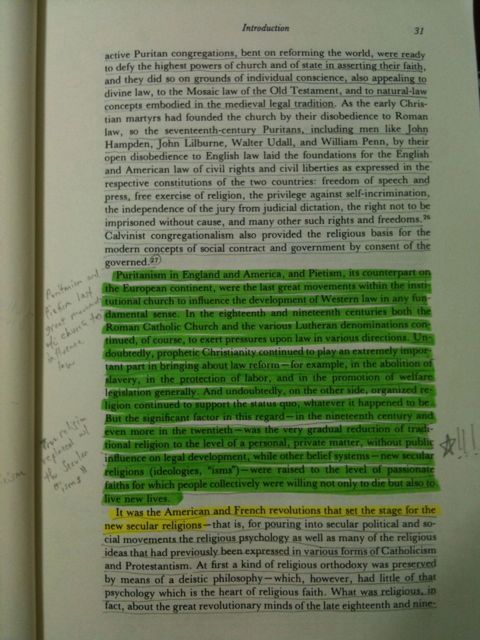The Sachsenspiegel (The Mirror of Saxon Law), circa 1220, states that “God is himself law, and therefore law is dear to him.” I would have to agree that it seems God does nearly everything by law. Everywhere you look in God’s creation, you will find laws there.
God built the physical world based upon laws. The law of gravity, the laws of planetary motion, and the laws of thermodynamics are just some of the laws that humans have discovered to have been built into creation by the Creator. Many more laws governing the physical world could be listed.
Further, God also ordered the spiritual realm by law. For example, “without the shedding of blood there is no forgiveness of sins (Heb. 9:22b, ESV).” The Older Testament sacrificial system made this law plan to the Israelites via types (think about the book of Leviticus,) and the sacrifice of the Lord Jesus on the cross served as the antitype demonstrating conclusively the importance of this spiritual law.
God has also made laws to govern the social institutions and interactions. “Husbands love your wives, as Christ loved the church” and “[w]ives, submit to your own husbands, as to the Lord” are laws that God has given to govern the covenantal relationship of marriage (Eph. 5:25a, 22).” In the church, another covenantal social institution, God has legislated that “all things should be done decently and in order (I Cor. 14:40, ESV).”
Many more examples of God’s Law for the physical, spiritual, and social dimensions of life could be given; however, the examples given above are enough to make the point that the Sachsenspiegel is accurate in its assertion that law is dear to God. He seems to have built it into everything He created.
Since law is dear to Him, and since He has seemingly built it into everything He created, we can safely assume that it is a part of His very nature and character, just like love and mercy. Accordingly, we can agree with the Sachsenspiegel when it says that “God is himself law.”
Since God is in this sense law, and since law is dear to Him, it would seem that law should be very important to the Christian. We should want to discover these laws and order our lives accordingly. Again, an illustration might be beneficial here. If you want to prosper and do well physically, it is important to understand the law of gravity.
If you are a parent of young children and live in a two-story house, you have likely experienced the law of gravity rather dramatically. Young children, particularly boys, seem to need to learn the hard way that they need to walk down the steps—not jump—in order to arrive safely at the bottom. This predilection often leads to some memorable falls. The sound of a little human crashing down the steps tends to vividly make the point that it is important to order our lives according to the law of gravity!
Unfortunately, the age in which we live is very antinomian, which simply means that the spirit of the age is against law and indeed seems to hate law. If God is himself law, then this is, of course, hatred of God. Even the church seems to be saying of the laws of the Lord and His Anointed, we will “burst their bonds apart and cast away their cords from us (Ps. 2:3, ESV).” Thus, we witness the devastating tragedy that those who comprise the bride of Christ are saying to Christ and to the world around them—“I hate my husband.”
So, that being said, how do you feel toward law? In particular, how do you feel toward God’s laws? Important questions to ask because they are better proxies for how you actually feel about God Himself than whether you got the “warm fuzzies” in last week’s worship service. It is possible to have the “warm fuzzies” about a god while hating the true Triune God, who is a God of not only mercy and love but of law.

 This strange-looking picture is of a page of one of the books that I have mentioned in several of my posts, Law and Revolutionby the late Harold J. Berman. It gives, for those interested, an idea of how I read and mark-up a book. More importantly, the green-highlighted quote is a powerful statement of why the church has ceased to impact the world in a fundamental way, and it is also a statement of why most Christians fail to live out their faith vibrantly in all that they do. Os Guinness in his great book The Call uses the word “privatization” to refer to this phenomenon. Thus, the question that serves as the title of today’s post — “have you been privatized?”
This strange-looking picture is of a page of one of the books that I have mentioned in several of my posts, Law and Revolutionby the late Harold J. Berman. It gives, for those interested, an idea of how I read and mark-up a book. More importantly, the green-highlighted quote is a powerful statement of why the church has ceased to impact the world in a fundamental way, and it is also a statement of why most Christians fail to live out their faith vibrantly in all that they do. Os Guinness in his great book The Call uses the word “privatization” to refer to this phenomenon. Thus, the question that serves as the title of today’s post — “have you been privatized?” 